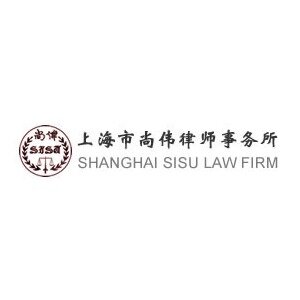Best Bankruptcy & Debt Lawyers in Shanghai
Share your needs with us, get contacted by law firms.
Free. Takes 2 min.
List of the best lawyers in Shanghai, China
About Bankruptcy & Debt Law in Shanghai, China
Bankruptcy and debt law in Shanghai, China, is primarily governed by the Enterprise Bankruptcy Law of the People's Republic of China, enacted in 2007. This law provides a framework for the liquidation and reorganization of companies that are unable to pay their debts. In addition to this national legislation, local regulations and court practices in Shanghai can impact the handling of bankruptcy cases, making it important to have a nuanced understanding of both the broader national framework and the specifics of local enforcement. The law aims to balance the interests of debtors and creditors, facilitating fair and efficient resolutions. Shanghai, being a major commercial hub, often deals with complex bankruptcy cases involving domestic and international creditors.
Why You May Need a Lawyer
Engaging a lawyer in matters of bankruptcy and debt can be crucial for a variety of reasons. Individuals or businesses may face overwhelming debt and need assistance with debt restructuring or entering into formal bankruptcy proceedings. A lawyer can help interpret complex legal jargon, offer negotiation strategies with creditors, and ensure compliance with all legal requirements. Additionally, creditors may require legal assistance to ensure their rights are protected in bankruptcy proceedings, particularly in recovering debts or securing their interests against a debtor’s assets. The interconnection of local and national regulations means legal guidance is essential to navigate the bankruptcy process effectively.
Local Laws Overview
The Enterprise Bankruptcy Law serves as the core legal structure for bankruptcy proceedings in Shanghai, outlining mechanisms for liquidation and reorganization. Key aspects include the:
- Bankruptcy Petition Process: Initiated by either the debtor or creditors if the debtor is unable to repay debts.
- Reorganization: Allows a debtor to propose a plan to repay debts over time while maintaining business operations.
- Liquidation: The orderly sale of a debtor's assets to repay creditors, resulting in the closure of the business.
- Debtor's Assets: A thorough review and management of the debtor's assets to maximize payment to creditors.
- Creditor Meetings: Formal gatherings allowing creditors to discuss and vote on the debtor's reorganization or liquidation plans.
Frequently Asked Questions
What is the first step in filing for bankruptcy in Shanghai?
Typically, the process starts with filing a bankruptcy petition, either by the debtor or creditors, in the People's Court in the jurisdiction where the debtor is located.
Can an individual declare bankruptcy in Shanghai?
No, the current legal framework only supports corporate bankruptcy; there is no provision for individual bankruptcy in China.
What is the role of the administrator in bankruptcy proceedings?
The administrator, usually a law firm or accounting firm, oversees the bankruptcy process, including asset management, debtor's affairs, and creditor meetings.
How does reorganization work under Chinese law?
Reorganization allows a debtor to propose a plan within a six-month period (extendable by three months) to restructure their debts without liquidating the business, subject to creditor approval.
What happens during a creditors' meeting?
Creditors gather to discuss matters related to the bankruptcy case, including verifying claims and voting on proposed reorganization or liquidation plans.
How long does the bankruptcy process take in China?
The duration varies depending on the complexity of the case, typically ranging from several months to a few years.
Can foreign creditors participate in Chinese bankruptcy proceedings?
Yes, foreign creditors can participate and have rights similar to domestic creditors but may face additional complexities involving cross-border issues.
What is a pre-packaged bankruptcy in China?
A pre-packaged bankruptcy involves a pre-arranged agreement between the debtor and creditors before filing the bankruptcy petition, paving the way for a smoother process.
What are the consequences of filing for bankruptcy?
Filing for bankruptcy can lead to the liquidation of assets, business closure, negative credit impact, and ineligibility for government support or loans.
What legal protections do creditors have?
Creditors have rights to form a committee, vote on key issues, and receive payment from asset distributions in line with the priority of claims.
Additional Resources
Several resources are available for those seeking more information or assistance regarding bankruptcy and debt in Shanghai:
- Shanghai Municipal People's Government: Provides general information on local regulations and business support.
- All-China Lawyers Association: A resource for finding qualified lawyers specializing in bankruptcy and debt.
- Shanghai High People's Court: Offers resources and details regarding major bankruptcy cases and legal procedures.
- Legal Aid Centers: Free or low-cost services for basic legal inquiries and assistance in understanding rights under the law.
Next Steps
If you require legal assistance with bankruptcy and debt in Shanghai, consider the following steps:
- Consult with a Lawyer: Seek out a professional specializing in bankruptcy law to receive tailored advice.
- Prepare Documentation: Gather all relevant financial and legal documents to facilitate legal evaluation.
- Explore Negotiation Options: With your lawyer, discuss potential debt restructuring or settlement negotiations with creditors.
- Attend Legal Proceedings: Actively participate in creditor meetings and court proceedings as guided by legal counsel.
- Follow Legal Guidance: Adhere to the advice and procedural requirements set by the legal team to maximize your legal position.
Lawzana helps you find the best lawyers and law firms in Shanghai through a curated and pre-screened list of qualified legal professionals. Our platform offers rankings and detailed profiles of attorneys and law firms, allowing you to compare based on practice areas, including Bankruptcy & Debt, experience, and client feedback.
Each profile includes a description of the firm's areas of practice, client reviews, team members and partners, year of establishment, spoken languages, office locations, contact information, social media presence, and any published articles or resources. Most firms on our platform speak English and are experienced in both local and international legal matters.
Get a quote from top-rated law firms in Shanghai, China — quickly, securely, and without unnecessary hassle.
Disclaimer:
The information provided on this page is for general informational purposes only and does not constitute legal advice. While we strive to ensure the accuracy and relevance of the content, legal information may change over time, and interpretations of the law can vary. You should always consult with a qualified legal professional for advice specific to your situation.
We disclaim all liability for actions taken or not taken based on the content of this page. If you believe any information is incorrect or outdated, please contact us, and we will review and update it where appropriate.
Browse bankruptcy & debt law firms by service in Shanghai, China
Shanghai, China Attorneys in related practice areas.












